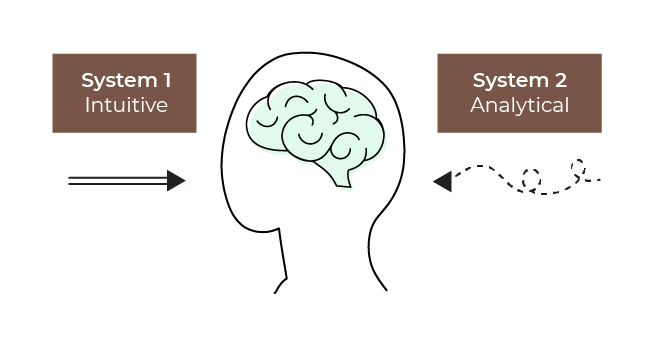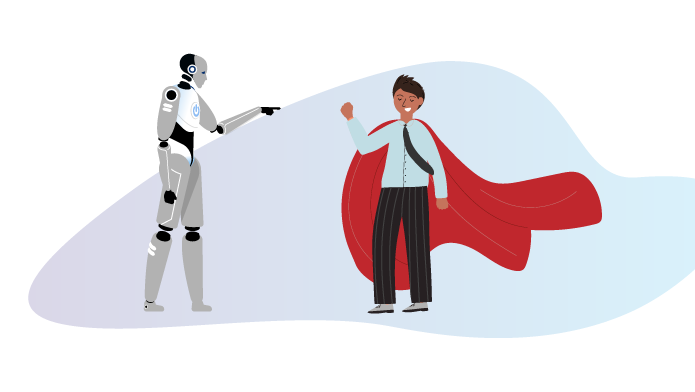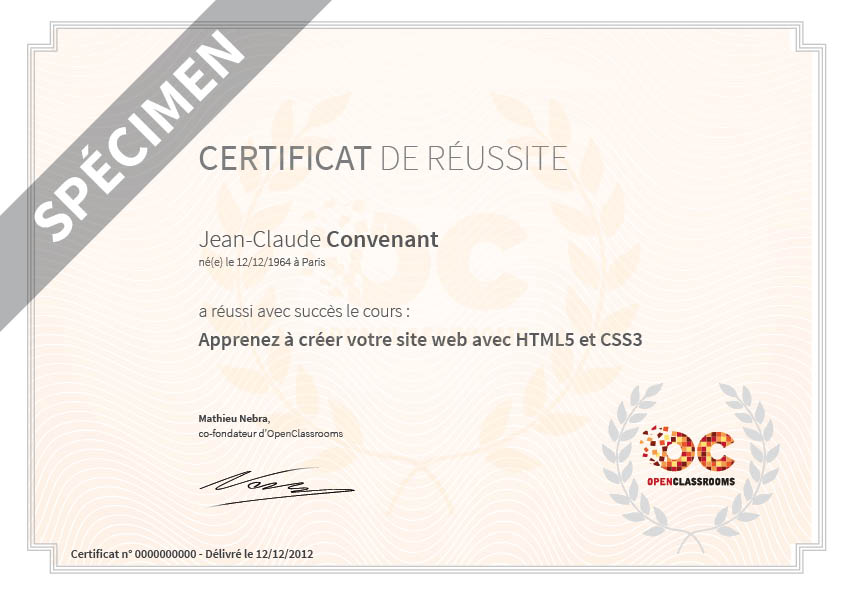Let's go back to the exercise you just did in the video above. Did you answer $0.10 instead of $0.05? Don't worry; some of the brightest students made the same mistake as well.
But what happened in my brain? 😱
According to Daniel Kahneman, a psychologist and economist notable for his work on the psychology of judgement and decision-making, you prioritized your intuition over logical effort (more time and energy-consuming), resulting in a rapid and automatic but wrong answer. In other words, you used a judgment heuristic. You used your intuitive thought system (judgment heuristics) as part of the exercise. You use these heuristics every day, and they are instrumental in helping you decide quickly and efficiently. But sometimes, they create distortions that mislead you. In this case, they're then called cognitive biases.
Identify Your Two Thought Systems
What happens in my brain when I make a decision? What guides me?
According to Daniel Kahneman, your mind is ruled by two entities. In his book "Thinking Fast and Slow," the psychologist offers a brilliant theory: we have two modes of thinking that influence our decision-making. In effect, our brain is working at double speed. Of course, this theory is not to be taken literally: there is no switch in the brain moves you from one system to another. However, this model demonstrates how reasoning and decision-making work.

System 1 allows you to make quick decisions. It's a system of thought that's:
| System 2 allows you to think, methodically analyze, and decide. It's a system of thought that's:
|
Imagine you plan to use an outside service provider to create your new start-up's website. To make your choice, you could:
Call two possible service providers and choose the one that gives you the best feeling. You are then relying on System 1: intuitive and fast.
You get in touch with customers whose websites were created by the two potential service providers and ask them for references. You're then using System 2: analytical and slow.
Okay… but when should we use each of these systems of thought? 🤔
The two thought systems are complementary. Depending on the nature of the decision, you'll tend to use one more than the other.
When the stakes are low, and there's no significant impact on your life, you're more likely to use System 1 without even realizing it:
Ketchup or butter on your spaghetti?
Pink or white shirt?
Peach or lemon sorbet?
Sneakers or high heels?
When your life, business, or career depend on the issue, you generally analyze the situation and prefer to use System 2:
Making a business plan.
Accepting a managerial position abroad or staying where you are.
Going in another direction or staying the course.
Activating your network or working undercover.
Let's listen to the neuroscientist Marcia Goggard as she explains the difference between the two thought systems and why cognitive biases exist.
Why Reason and Intuition Are Complementary
In your opinion, would a robot with artificial intelligence make better decisions than the most capable contributor in a company? 🤔

If there is no uncertainty and risk, the answer is certainly yes: robots probably analyze faster than humans.
But if the issue is complex and there is uncertainty, then probably not. The robot lacks:
Experience.
The ability to learn from its mistakes.
Emotional intelligence, empathy.
Ethical considerations.
To make decisions, you also need human skills – or soft skills – and an ability to appeal to your intuition and emotions.
Develop Your Intuition
Many business leaders admit to using their intuition to make decisions. Founder of BlaBlaCar Frédéric Mazzela attributes intuition to his success and even describes an "Aha!" moment as "a flash that lasted 72 hours" that helped him create his concept in 2006.
Everyone has this sixth sense or instinct that helps them choose the right path.
In other words, it's about tapping in to your memories and experience to identify similar past situations, then drawing conclusions based on your experience.
Intuition is like a muscle: it needs training. If you are rational, you distrust and turn off that little inner voice. However, it can sometimes be a good advisor, especially in uncertain situations.
You can develop your intuition by putting your "thinking cap" to rest, focusing on the here and now, then listening to what's going on inside. Your intuition whispers in your ear. It's up to you to listen.
Let’s check in with Ana Thorsdottir, a PR manager and influencer, who is mastering the art of intuition:
It's Your Turn!

Mindfulness meditation is often recommended as a way to improve your intuition. This technique focuses on being in the present moment, helps reduce stress and anxiety, and contributes to your overall well-being. You may be wondering what this has to do with decision-making. Meditation helps you develop your ability to listen more closely to your feelings and trust yourself.
If you're curious about meditation and mindfulness, here's two short exercises:
The Raisin Exercise: A guided mindfulness exercise that focuses on using all your senses to experience an everyday object - a tasty raisin.
Guided Meditation Exercise: A 5-minute beginner meditation to provide you with space to clear your mind and promote creativity.
Let's Recap!
In this chapter, you discovered that:
Your brain works at two speeds: fast intuitive thinking (system 1) and slow analytical thinking (system 2).
Your brain moves from System 1 to System 2 to make better decisions.
Your intuition is fed by your expertise and by a database filled with information and experiences.
We've talked a lot about reason and intuition, which directly affect decision-making, but not very much about emotions. We'll examine emotions in the next chapter.
